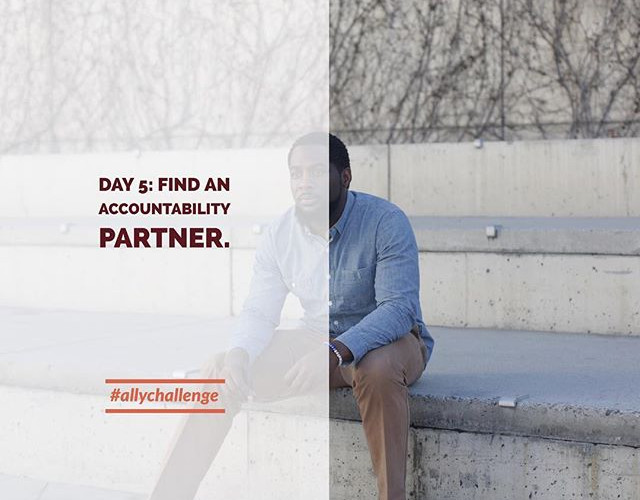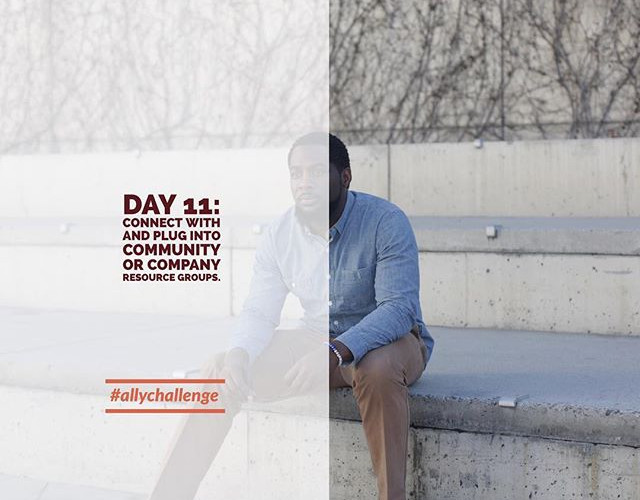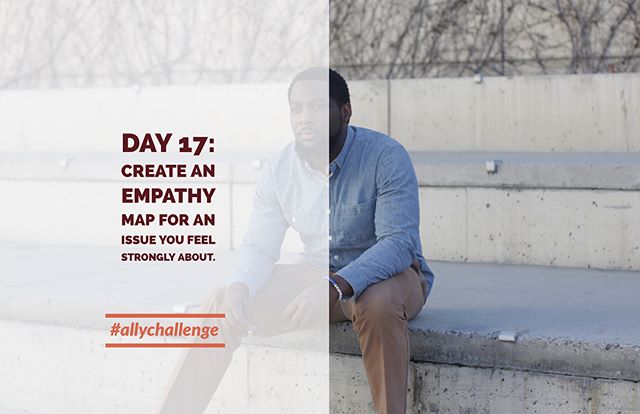How To Challenge Ourselves to Grow As Allies
- Corey Ponder
- Jun 30, 2018
- 4 min read
Updated: Dec 24, 2020

Last month, during a conversation with someone about growing as an ally, they asked about specific actions that would help reinforce the concept or help them in their journey.
It was a great question. Talking about allyship (or privilege, bias, or identity) helps shine a light on areas where we have gaps in our knowledge. It illuminates those opportunities we have to grow from others’ experiences.Words can transform mindsets and break down the limiting parameters we sometimes operate within to understand and process the world.
However, it is action that transforms behavior. And being an ally is not only about changing our mindset, but also about challenging ourselves daily to take steps forward — steps that force us to check our blindspots, to learn a lesson, or to be accountable for our words and actions.
It reminds me of the experience and process of learning to drive. At age 15, I eagerly went to the DMV with my dad and picked up a driver’s manual. It taught me all sorts of amazing things — demystifying the system of the double, single, and dashed line, the differences between the flashing light and the steady light — and gave me a framework to understand how to be a responsible driver.
That knowledge allowed me to ace the learner’s permit test. I knew how to be a “good driver”, but I had not become one simply from passing a test. Becoming a better driver took time, practice, honesty, confidence, and accountability for results.
I had to be intentional about finding time with my dad to practice driving in empty parking lot.
I had to be honest with myself about the areas of driving where I sucked ( 👋🏾 parallel parking) and not avoid the lessons that came from failing.
I had to be confident despite the discomfort around trying something new — learning how to use the gas (but mostly the brake), steering without oversteering, shifting gears — and not let the discomfort paralyze me into inaction.
I had to focus on a goal. I wanted to be a good driver, and I made sure that I was accountable and committed to learning how to drive well, rather than well enough to pass.
After that conversation, I wanted to approach being a better ally the way I approached driving at age 15 — with practice, honesty, confidence, and accountability.
For 21 days, I took an action every day focused on one of three things — watching or reading something new about allyship, privilege, bias, or identity, taking an action that placed me outside my comfort zone, and checking my blindspots. If you are thinking about what specific actions would help you grow as an ally, I would encourage you to find and commit to consistent actions focused on these areas.
What Can You Learn?
In my first article on Medium, I highlighted the importance of educating ourselves. While it focused on building empathy, I believe that being an effective ally is really about the practice of empathy — caring about the unique challenges and experiences of others. We can only gain so much from our own world experiences. When you find something to read or watch that exposes you to new information about a community or a person and the challenges they wrestle with, you increase your capacity to empathize and learn more about the world through their experience.
What Makes You Uncomfortable?
Being an ally means becoming comfortable being uncomfortable. As people, we crave belonging and social acceptance; we also prefer the things that we are most familiar with.
Being an ally means stepping outside of these safety nets. Allies recognize their privilege and status within the in-crowd but support others that are outsiders or lack a voice in the in-crowd. This requires challenging accepted group dynamics and recognizing that being part of the in-crowd should not supersede the importance of supporting individuals that are outsiders or that lack a voice in the in-crowd. Allies recognize and define the boundaries of their comfort zone, and then find ways to stretch those boundaries and stretch themselves.
Identify moments that make you uncomfortable. Also think about moments where you feel annoyed, angry, anxious, surprised, confused, or defensive. These are signs that you are being challenged — which is not necessarily a bad thing when we make the space to learn from it.
Focus on understanding your reaction to these moments and do not shy away from choosing actions that challenge you to work through these reactions productively.
What Are Your Blindspots?
Even on our best days, we can make mistakes. Being an ally isn’t a video game— the expectation should not be that we will complete a few quests, amass a large number of experience points, and upgrade to the power, level, and rank of an Ally Master. Being an ally is like improving a batting average. Every day we have many attempts at the plate, and how prepared we are — for the type of pitch, our technique, prior experience with the pitcher — dictates how often we will get a hit and how often we will strike out.
We reduce our strikeouts by taking the time to address our blindspots. Commit to actions that help you identify what those blindspots are — they could be biases or a gap in knowledge — and then take the time to understand how those blindspots can affect your time at the plate.
Over 15 years later, the idea of driving now seems second nature. Moments behind the wheel that would make me nervous or uncomfortable at age 15 ( 👋🏾 again parallel parking) now seem like second nature. Over time, and with many opportunities, I have been able to normalize the idea of driving and embrace what it means to drive well.
With practice, time, and opportunities, we can build ourselves up to be stronger, better, allies. Focus on learning more, stretching your comfort zone, checking your blindspots, and challenging yourself in these areas on a daily basis.
My 21-Day #AllyChallenge Actions
If you are stuck, or looking for specific ideas, I shared my actions via Instagram under the hashtag #allychallenge as way to hold myself accountable and also as a resource! Let me know if you find them useful 🙂.














































